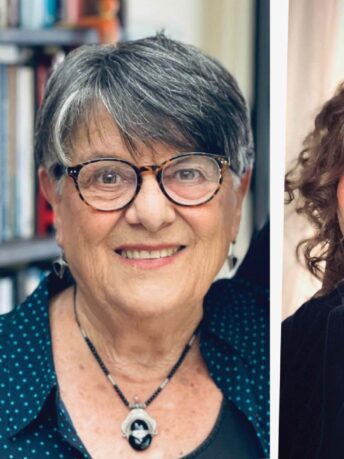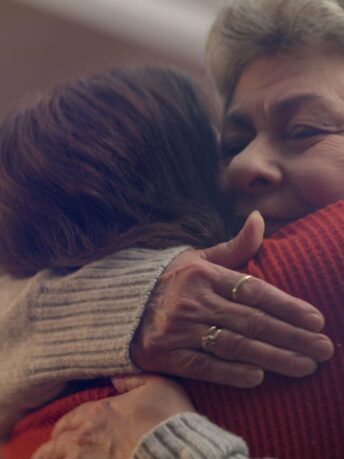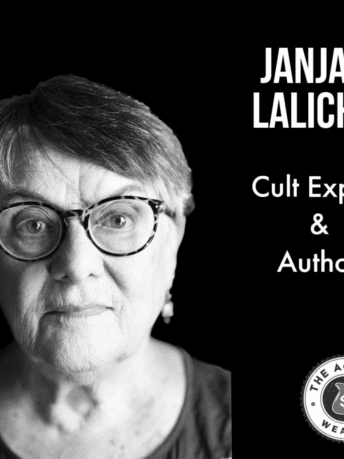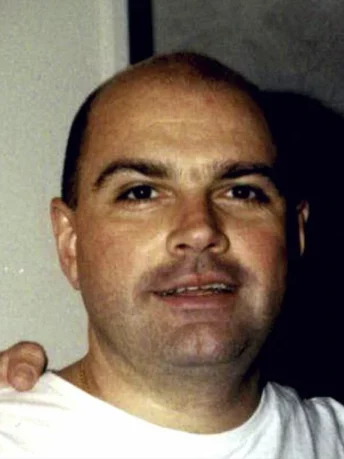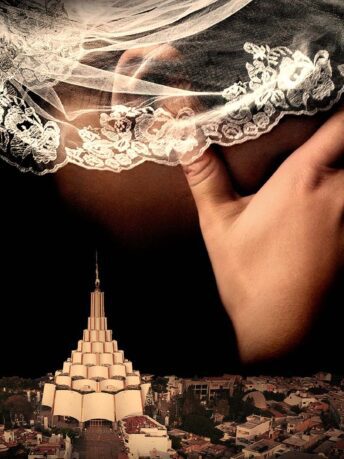Janja Lalich, Ph.D., Emeritus Professor of Sociology
Prepared for European Conference of FECRIS
16 May 2015 ✪Marseille, France
Introduction
As I see it, presently, four main issues affect cult-related court cases in the United States. These are (1) not enough attorneys who will take these cases; (2) not enough qualified experts to testify on behalf of victims; (3) the unwillingness of the courts to touch anything related to “religion” because of the omnipotent First Amendment of the U.S. Constitution (the so-called ”freedom of religion” amendment); and (4) the confusion wrought by cult apologists – that is, the confusion about cults vs. religion, and the confusion about free will vs. what I call “bounded choice” – which may also be regarded as a confusion about brainwashing vs. indoctrination. These factors can affect both criminal and civil cases, including divorce and custody cases and settlements.
-
Not Enough Willing Attorneys
Quite simply, not enough American attorneys are willing to take cult-related cases. They may be stymied by the problem; they may not clearly understand the issues of undue influence or the workable theories; they may not take advantage of the knowledge of cult experts in devising strategies; and they may not see a win. And, of course, for many attorneys, if they don’t see a win, they are not likely to proceed with a client. In many instances, they won’t even hear the client out. Even should they be interested in the case, they may not know how to argue the cult-related issues because they may hold some of the same prejudices and misgivings about cults as much of the general public does about this sorely misunderstood social problem. This latter point may also create obstacles during jury selection.
Some of the older attorneys who did such cases are just that: older, retired, and passing on. Unfortunately, a new crop of attorneys interested in cult-related cases has not materialized. This means, naturally, that even if a former cult member or someone victimized by a cult wants to file a lawsuit or fight for custody of his or her children, he or she may be hard-pressed to find an attorney willing to take on the case. Needless to say, most victims/survivors don’t even consider filing a suit because either they are unaware of how to do so or they simply are wanting to move on with life and not think about it anymore. Similarly, spouses and/or parents tend to find the courts not willing to address the issues, especially if it involves a “religious” cult.
An illustrative example of the use of cult expertise and theories of coercive persuasion is the case of Lee Boyd Malvo, the young man charged with sniper attacks and murders in Washington, DC in 2002. Malvo, 17 at the time, was under the influence of his “surrogate father,” the older (41-year-old) and extremely domineering John Allen Muhammad. In hoping to mitigate a death penalty verdict, Malvo’s defense utilized the late psychologist Dr. Paul Martin. As reported in The Baltimore Sun:
Martin’s testimony was the groundwork for a series of mental health experts who will be called to the witness stand next week in an effort by the defense to try to convince jurors that Malvo was insane – and not guilty – when he was involved in the attacks. The defense began with having Martin explain how people can be coerced into changing their systems of beliefs and behavior. On Monday, psychologist Dewey Cornell will be called to testify that, based on his 300 hours of examinations, he believes that Malvo was “indoctrinated” by Muhammad, 42. The former Army soldier was convicted last month for his role in the attacks; the jury recommended he be sentenced to death. Cornell’s testimony will be followed by other defense experts who will say that Malvo’s brainwashing was so severe that it overwhelmed his sense of right and wrong. [Despite prosecution objections], the defense maintains that Malvo’s brainwashing was a “dissociative disorder, not otherwise specified” (a diagnosis in the American Psychiatric Association’s Diagnostic and Statistical Manual of Mental Disorders).
Ultimately, Malvo was spared the death penalty, but “remains incarcerated at Red Onion State Prison in Virginia, where he is in isolation, having no human contact.” John Allen Muhammad was executed in November 2009.
Similarly, in 2013 in a Washington State Superior Court custody hearing, I was able to explain to the presiding judge why it could be harmful to the couple’s 5-year-old son if he were to be exposed to the cult environment in Colorado, where the father had moved to be more involved with the cult. The cult leader, Lord Ra-El had declared himself to be Christ returned and was preaching about the benefits of adult sexual activity with minors, as well as trying to make contact with known high-profile terrorists. The judge ruled no contact between father and child until he sought counseling and various other requirements. If and when all requirements outlined by the judge were satisfactorily completed, any visitations between father and child were to be monitored by a professional evaluator.
I submit that those of us who are active in this field must strategize about how to pique the interest of lawyers and how to educate them about the potential for good outcomes in these cases.
-
Not Enough Savvy & Qualified Experts
Being an expert witness in the American legal system is not a picnic. Not even close. It is even less so in cult-related cases. It is the job of the other side to tear you apart – which is done in deposition and carries on into the courtroom. It takes a confident person with tough skin to endure the badgering and efforts at degradation and humiliation time and again.
But our problem here begins with the reality that there are not enough qualified cult experts – individuals who preferably hold doctoral degrees, have or had university affiliations, and who are savvy about this subject – that is, the methods and consequences of cult indoctrination and the ease by which citizens may be taken in by a cult ploy. In the United States, unfortunately, long-time cult apologists and some of their protégés reside in many Religious Studies programs and many Sociology departments. Unsuspecting graduate students who may show an interest in cults (or “new religious movements,” the apologists’ preferred label) are then taken under the wings of these naysayers and groomed to carry the torch. The few of us in Sociology – for example, Dr. Benjamin Zablocki, now retired from Rutgers; Dr. Stephen Kent at the University of Alberta in Canada; and myself, recently retired from California State University, Chico – have fought the good fight, but we are sorely outnumbered. And as you might suspect, ICSA has been of no help in this regard, having given more and more credence to apologists such as Eileen Barker and company, since the passing of ICSA’s brilliant and unafraid longtime president and leader, New York attorney Herbert Rosedale..
Again, it is my desire that we encourage the study of social influence and control, with an emphasis on groups and/or individuals that espouse ideological extremism of any sort and live by an ends-justify-the means philosophy. This would also include cultic “personal” relationships (one-on-one or family), cultic businesses, human trafficking, and various New Age cons that use similar methods of undue influence and coercive persuasion to woo, retain, and control their followers. This means publishing more articles in peer-reviewed journals, getting book contracts with academic or serious presses, writing editorials and news analyses in conjunction with current events, and doing smart media interviews and press conferences. We are at a troubling, for sure, but also an auspicious moment to do this – in that the terrorist activities have re-opened the public discussion of “brainwashing,” of extreme indoctrination. We are on the right side of history and we must take a stand and we must draw young scholars into our midst.
-
Fear of Offending – The Shadow of the First Amendment
The Fist Amendment of the U.S. Constitution reads:
Congress shall make no law respecting an establishment of religion, or prohibiting the free exercise thereof; or abridging the freedom of speech, or of the press; or the right of the people peaceably to assemble, and to petition the Government for a redress of grievances.
And with that first clause comes, among other things:
- Financial assistance to church-related institutions (how many millions of U.S. Federal dollars go to so-called faith-based charities?)
- Release time in public schools for religious holy days
- Tax exemption on religious property (how low would the U.S. national debt be if Scientology, for example, paid taxes?)
- Sunday closing laws
- Religious governmental observances and religious displays on government property (from the U.S. Congress down to my local City Council, every session starts with a prayer)
- Exemption of religious organizations from generally applicable laws (and you’ve no doubt heard of the same-sex wedding cake hullabaloo?)
Yet, in rulings regarding polygamy in 1878 and 1890, the U.S. Supreme Court made a distinction between freedom to believe and freedom to act. One could only wish that that tradition had continued. But not so. Over the years, more and more U.S. courts have tended to give considerable protection to religion. In 1940 the U.S. Supreme Court overturned the conviction of a Jehovah’s Witness and his two sons for proselytizing, and concluded:
In the realm of religious faith, and in that of political belief, sharp differences arise. In both fields the tenets of one man may seem the rankest error to his neighbor. To persuade others to his own point of view, the pleader, as we know, at times, resorts to exaggeration, to vilification of men who have been, or are, prominent in church or state, and even to false statement. But the people of this nation have ordained in the light of history, that, in spite of the probabilities of excesses and abuses, these liberties are in the long view, essential to enlightened opinion and right conduct on the part of the citizens of a democracy.
Later, in 1963, Justice Brennan wrote that the line in the sand separating belief from action was to determine whether or not a specific religious practice caused “a substantial threat to public safety, peace or order.”
So there you have it.
An excellent resource on this topic is Constitutional expert Marci Hamilton. Her book God vs. the Gavel: Religion and the Rule of Law documents how nearly impossible it is to prosecute child abuse by clergy, medical neglect by faith healers, and other intolerable so-called religious practices and behaviors. Hamilton writes in the book’s introduction:
There is a dangerous Pollyanna attitude lulling Americans into assuming that if the actor is religious, the inevitable result is good. This is a reality check: religious entities harm people every day, and even though I am a religious believer myself, I say with conviction that it is foolhardy to permit religious individuals and organizations to be unaccountable. The prevailing trust in religious organizations and individuals has led to a patchwork of laws that create special privileges for religious entities beyond anyone’s initial expectations.
Point in fact, as I was writing this, on April 20, 2015, the California Appellate Court, in another Jehovah’s Witnesses-related case, found that “the church has no duty to prevent its members from harming each other” (Conti v. Watchtower Bible & Tract Society of New York, Inc.). This judgment reversed an award of $8 million in punitive damages. The plaintiff had sued her abuser (her stepfather) and the Watchtower Society, claiming that she had been repeatedly molested during church-sponsored activities over a two-year period. He admitted his molestations to his elders, who neither notified the police nor warned the congregation. This privileging of penitential confessions essentially goes along with California courts’ consistent rulings in this regard. And the pattern repeats itself in other states.
Another problematic factor in the U.S. is the ease with which a group or organization may become a religion. Given that the Constitution makes it clear that the government cannot define a church, the result has been that anything goes. Just this week an adult sex club in Nashville, Tennessee, declared itself a religion and won approval from the city of Nashville to open its new facility next to an elementary school, Christian no less – even though there is a city law disallowing private sex clubs from being within 1,000 feet of schools, parks, day care enters, and houses of worship. The proprietors changed the name from The Social Club to The United Fellowship Center. A room once labeled “dungeon” is now called “Choir;” and the 49 small, private rooms are now “prayer rooms.”
-
Confusion Wrought by Cult Apologists
It is not unknown to this audience that the vast damage and damage control perpetuated by the cult apologists – usually in the name of “freedom of religion” – is a long-standing battle that I’m sorry to admit has typically gone in their favor. For years, they managed to silence the press (at least in the U.S.) from writing negatively about cults; in fact, even the word “cult” was rarely to be seen or heard in the media. Thanks to some brave documentarians who have done excellent stories about cults and their victims (praise for HBO and Going Clear and the Investigation Discovery channel’s Dangerous Persuasions series), this may be beginning to change.
Alongside the apologists’ strategy to influence the media, they have consciously or unconsciously, deliberately or without mal intent, tarnished the reputations of known cult critics, none more viciously so than the assaults on Dr. Margaret Singer in California and Dr. John Clark in Massachusetts (Clark was a psychiatrist at the Harvard Medical School, and founder of the American Family Foundation, the precursor to ICSA). This behavior emboldened the cults in their advances in this arena. For a time, for example, and perhaps this persists today, Scientology would lend private investigators and legal assistance to any cult-related case, even to some of their sworn or ideological enemies. Unethical activities elicit strange bedfellows indeed. And many of the apologists have been used as counter-experts in legal cases – the most infamous being professional cult apologist, Dick Anthony, who reportedly makes $3,500 a day testifying for cults –and that was in 2003.
No matter the case, no matter the charges, no matter the evidence, Dick Anthony is likely to come to the aid of any cult or closed group that is being sued. In 2009 I was retained by the El Dorado County (CA) District Attorney’s office to testify in the trial of a polygamous cult leader who was accused of torturing and beating to death his own 4-year-old son. The defense hired Anthony to write a declaration supporting a motion in limine to exclude me from testifying at trial. Despite the lengthy false and misleading protestations of Anthony, the court ruled that my testimony was admissible. Another ruling, however, excluded the word “cult.” No problem, I said. I educated the jury about the power of social influence and control in a closed, or what I call a “self-sealing” setting, dominated by a charismatic personality and creating a mindset that I call “bounded choice.” It was that phenomenon that prevented the women from calling the police at the time of the murder. No need to talk about cults or brainwashing. The average citizen is perfectly capable of understanding this type of undue influence. At trial’s end, Ulysses Roberson was convicted of 2nd-degree murder and sentenced to prison for 15 years to life.
Two things were unique about this case: (1) The child’s disappearance happened 24 years earlier in 1985 and, at the time, the “wives” who witnessed the beating and murder would not testify as they were still under Roberson’s sway; and (2) the boy’s body has never been found. It is extremely rare, as you probably know, to get a conviction on a bodiless murder charge. Yet, in this case, the prosecution prevailed.
The confusion about cults vs. religion is merely one important tactic in the legal defense of cults and their actors. Needless to say, the aspersions cast upon cult experts goes way beyond that debate, at least in American courts. I could tell you about the lawsuit against the owners of what became a business cult, where the defense attorney insinuated that I was Dr. Margaret Singer’s lover. Then he tried to show that I was biased because I myself had been in a cult. Then he tried to get the jury to dislike and distrust me because it had been a communist cult (no greater way to discredit someone in America!). Nevertheless, once again, the plaintiff prevailed, as the defendants chose to settle before the case went to jury.
Ultimately, it is my contention that so long as the apologists are actively trying to confuse judges and juries, it is our responsibility to take the matter in hand and put on the best defense against their distortions and false accusations. We do this by standing our ground, being extremely thoughtful and logical in our explications in courtroom testimony, and knowing that indeed we are on the right side of history.
Sources
- Lalich, J. (2004). Bounded choice: True believers and charismatic cults. Berkeley: University of California Press.
- Siegel, A. F. (2003, December 6). Witness links Malvo profile, brainwashing, The Baltimore Sun.0
- American Psychiatric Association. (1994). Diagnostic and statistical manual of mental disorders (4th ed.). Washington, DC: Author, pp. 490-91.
- Albarus, C. (2012). The making of Lee Boyd Malvo: The D.C. Sniper. NY: Columbia University Press, p. 10.
- Available: www.constitution.findlaw.com/amendment1.html.
- Reynolds v. United States, 98 U.S. 145(1878); Davis v. Beason, 133 U.S. 333 1890).
- Cantwell v. Connecticut, 310 U.S. 296 (1940).
- Available: www.constitution.findlaw.com/amendment1.html.
- Hamilton, M. (2005). God vs. the gavel: Religion and the rule of law. (NY: Cambridge University Press), p. xv.
- Available: www.jdsupra.com/legalnews/in-childhood-sexual-abuse-case-californ-19456/.
- Loller, T. (2015, April 25). Sex club seeks Nashville blessing by vowing to be a church. Associated Press.
- HBO (Producer), & Gibney, A. (Director). (2015). Going clear: Scientology and the Prison of Belief.
- Available: www.cultnews.com/?p=1482.
- For an excellent critique of Anthony’s thinking, see “Questions from the Balcony: A Critique of Dick Anthony” by Herbert L. Rosedale in Cults and Society, Vol.1, No. 1 (2001).
- People of the State of California v. Ulysses Roberson, No. S01CRF0236 (1985).
Do not cite without permission of the author.
© 2015 Janja Lalich


